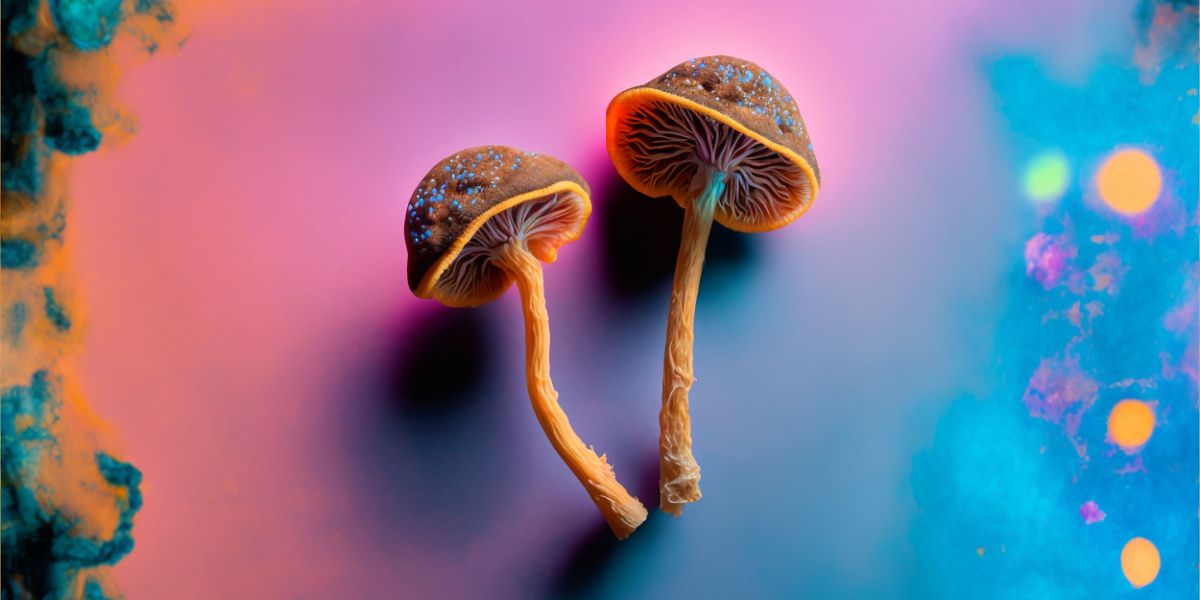A new report shows that magic mushrooms are the most commonly used hallucinogenic substance in the US. Research around the benefits of psilocybin and other psychedelics is ever-increasing, with many people reporting that they microdose magic mushrooms for psychological benefits.
-the-Most-Popular-Hallucinogen-in-the-US.jpg?v=1722870762)
Prevalence of use
RAND, a nonprofit research organization, has recently published a report investigating the prevalence of psychedelic and other substance use across the US. This report involves various sources of information, including a survey of 3791 US adults.
The report shows that, within the previous month, 0.9% of adults have used psilocybin mushrooms, while within the past year, 3.1% (or 8 million) adults have used the substance. Of the 8 million who used psilocybin in the past year, almost half (47%) reported that they took microdoses, a small amount of the substance that is not intended to produce the same psychedelic or hallucinogenic effects.[1]
This report shows that magic mushrooms containing psilocybin are the most commonly used psychedelic substance in the US, surpassing substances such as LSD and MDMA. This increase in psilocybin use occurs alongside an increase in scientific research into their medicinal and therapeutic benefits.[2][3]
Historical use of mushrooms
Many psychedelic substances, including psilocybin mushrooms, have been used historically for millennia by indigenous communities. Psychedelics are seen to hold spiritual and medicinal purposes amongst these communities, often being used in religious or healing ceremonies.[4]
As the use of psychedelic medicines expands, there is growing concern about the representation and acknowledgment of Indigenous peoples’ knowledge and culture in this area. Additionally, as policies in the US change, the exclusion of Indigenous and traditional practices is thought to increase.[4][5]
A recent paper has outlined these issues and suggested areas of consideration for Western researchers and policy-makers to help ensure ethical decision-making that respects and recognizes Indigenous traditions and influences.[6]
Scientifically proven benefits of psilocybin use
In recent years, scientific research into the therapeutic and medicinal use of psychedelics has steadily increased and developed, indicating many benefits of these substances. For example, psilocybin-assisted therapies have been investigated and tested in the treatment of several mental health conditions, including: [2][3][7]
- Depression
- Anxiety
- Insomnia
- Trauma-related conditions such as post-traumatic stress disorder (PTSD)
- Substance use disorders
- Eating disorders
- Stress
Additionally, there is a great deal of anecdotal evidence to suggest that microdosing psilocybin can also contribute to cognitive, behavioral, and psychological effects, such as improving mood, creativity, and energy.[8]
These effects have been less comprehensively and rigorously studied compared to higher doses. However, according to the RAND report, people are as likely to microdose mushrooms as to take large doses.[1]
Changes to laws and policies in the US
Currently, psychedelics remain illegal on a federal level according to the Controlled Substances Act, despite increasingly positive results from scientific studies. However, various states and local governments are beginning to change policies around the use of these substances, with some legalizing or decriminalizing use.[9]
Oregon is the first state to allow the supervised use of psilocybin. Professionals can administer psilocybin-assisted therapy to treat certain mental health conditions. Colorado is reported to be introducing similar legislation in 2025.[5][9]
Many professionals in the field liken this change in understanding and attitude toward psychedelics to the recent changes in perspectives and legislation around cannabis use. However, the RAND report highlights that psychedelics such as mushrooms are used far less frequently and in smaller doses than cannabis, which may influence policy changes due to smaller market demands.[1][5]
This report highlights changing attitudes toward psychedelic use and the need for further investigation into the patterns of use of psychedelics such as magic mushrooms.



-blog-detail.jpg?v=1722513257)